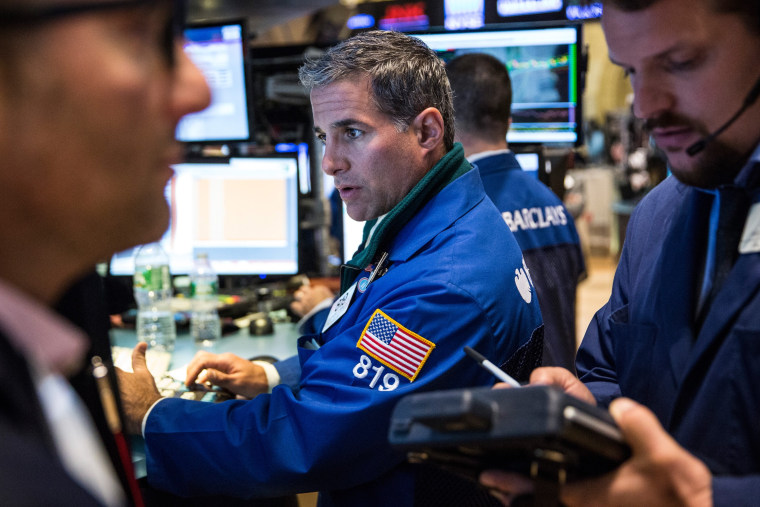U.S. stocks plummeted Tuesday as continued signs of weakness in China and concerns about the Federal Reserve weighed heavily on investor sentiment.
The major averages ended in correction territory, down nearly 3 percent after a failed attempt in the minutes prior to cut some losses.
The Dow Jones industrial average closed about 470 points lower, off session after falling as much as 548 points. The Nasdaq composite wiped out gains for 2015, joining the other averages in the red for the year so far.
"Today is just a continuation of last night's sentiment, plain and simple. Concerns continue to erupt about China's economy and the growth decline in energy and WTI today," said Ryan Larson, head of equity trading at RBC Global Asset Management (U.S.).
CNBC will air a special at 7 p.m. ET on the markets
Crude oil settled down 7.7 percent, down $3.79 percent, at $45.41 a barrel, giving back much of Monday's 8.8 percent surge.
Traders also continued to digest policymaker comments and U.S. data that could impact the timing of a rate hike.
Stocks hit session lows in afternoon trade after Boston Fed President Eric Rosengren said in a speech that the central bank's jobs target to raise rates has largely been met, but that its inflation target is not as clear cut. Rosengren is a nonvoting member of the Fed.
"Regardless of whether you're a voting member or not, if you (say) September's on the table, that's going to, in part, drive us lower," said Art Hogan, chief market strategist at Wunderlich Securities.
"I think that is clearly the center of the weakness but I don't know why people expect China to get any better," said David Kelly, chief global strategist at J.P. Morgan Funds. "China has its problems but it's not a big driver for the U.S. or earnings of U.S. corporations."
"Nothing happened yesterday to affect the people's perceptions of the Fed," he added.
Two sets of key Chinese data disappointed traders on Tuesday. The official manufacturing purchasing managers' index (PMI) edged down to 49.7 in August from 50 in July, while the final Caixin/Markit manufacturing PMI came in at 47.3 in August, the lowest reading since March 2009.
Even more worrying, China's services sector, which has been one of the lone bright spots in the sputtering economy, also showed signs of cooling, a similar business survey said.
"Services PMI was a little weaker than expected," said Ben Pace, chief investment officer at HPM Partners. He noted that many analysts were expecting the services sector to offset weakness in the manufacturing sector.
"I think it's continuation of the volatility we've been seeing. Our thought is this kind of volatility (is present) particularly because we're in the summertime. We're also in a news vacuum. No (major) earnings out there," Pace said.
The CBOE Volatility Index (VIX), widely considered the best gauge of fear in the market, has held stubbornly high near 30 since last Monday's plunge in stocks. The index held above 31 in morning trade.
"Granted, volatility tends to be more negative than positive in markets in general," said Randy Frederick, managing director of trading and derivatives at Charles Schwab.
After the Dow futures fell more than 400 points ahead of the opening bell, the New York Stock Exchange invoked Rule 48 for the fourth time in two weeks.
